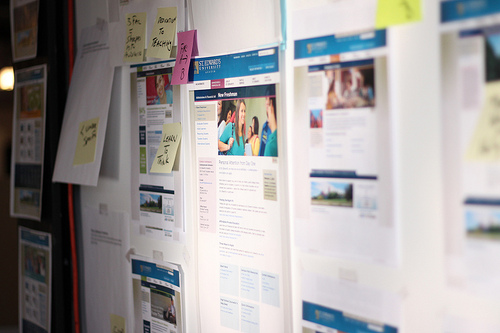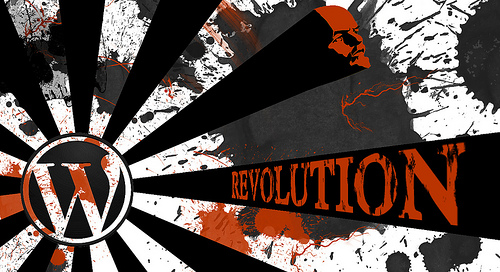
Do words like Joomla, WordPress, CMS, etc. scare you so much that you would rather live in the Stone Age? Promoting your business in an archaic way?
Well, fear not. Help is here. Having the same experience as you, I can totally understand where the questions and nagging doubts come from.
Let us start with answering the basic questions:
- What is the purpose of your website?
- Are you trying to create the next Facebook or just trying to reach your customers?
- What budget have you set for your project?
- Will you hire an expert or is it going to be a DIY project?
- How much time and money do you want to spend on maintaining it?
- And all this takes us to the most important question: Would it be a static site or a dynamic site using a CMS like WordPress?
It is fairly an easy process once you realize the kind of website that you are looking for, and how much you want to spend on it. Making sense of this tech-banter becomes a lot easy with some reading online.
Static v/s Dynamic Websites
First comes the choice part. Which type of website you want – static or dynamic. If you don’t need to update your website more than once a year, static websites are the way to go.
Static websites need a very little start up cost. They turn out to be costly in the long run as the site grows. The requirements continue to expand and it is no longer feasible to maintain such a site due to the time it takes to update it as per the evolving content and design requirements.
Imagine your simple HTML site an year from now. The content has grown and the navigation needs to expand to cater to the growing site. It would take an equal amount of time to edit each new page that it took to create the very first webpage. But since it is a static site, the future of the site is frozen in stone.

The look and the feel of the static website remains the same as you can judge from the name and if you need to make any changes to the website, you will have to contact the designer and request him to make the changes. If you are a rookie like me that would seem like a herculean task.
However, if you have a dynamic website based on a CMS on the other hand, you can make changes to one template and it would be reflected throughout the site. There is no need to start from scratch like in a static site and making design changes on every page of the website.
The choice remains yours — if you want a glorified brochure, a static website would do and if you want to interact with your visitors, have better ranking and reach out to larger audience, then dynamic sites using CMS is what you need.
Content Management System
After discussing about the type of the website to choose from, let us talk about what a CMS is and which CMS your website needs.
What is a CMS: CMS is a Content Management System. It is a software that allows you to focus on creating content instead of wasting your time in maintenance, coding and needless other issues.
Some of the popular CMSs are Joomla, Drupal, WordPress, etc.
Out of all the CMS software that are available, I personally recommend WordPress. This brings us to the next question i.e., “why WordPress?”. What makes it special and stand out from the crowd.
Why WordPress?
It is the simplest yet a loaded answer. WordPress started as a blogging and publishing tool and today, it is the most sought after CMS tool. Out of every 100 top sites, 52 are based on WordPress according to WordPress stats shared by Yoast (here) and Royal Pingdom (see here).

The reason behind WordPress’s staggering popularity lies in one phrase Ease-of-Use. It is not only free software but among other free CMS software available, working with WordPress is as simple as opening your browser and emailing a friend. But this is not the only reason for WordPress’s popularity among the web designers and the clients, there are several other features that make WordPress rock.
Features That Make WordPress, The Ultimate Website Platform
Let’s have a look at features that make WordPress, the ultimate blogging tool and one of the most successful CMS.
- User-Friendly: You can be a novice at WordPress or you can be a pro, it will always offer the ease-of-use. The interface is such that you can create posts and pages with much ease. Not only is it easy to use, it offers a strong community backing that is always ready to help you with any issues in maintaining your WordPress website without having to nail it all by yourself.
- Flexible: Although WordPress doesn’t do yoga; still it is the most flexible CMS. It is customizable in every sense. You can tailor it according to your needs; with little or no effort.
- Search Friendly: Yes, you read it right. WordPress is search engine friendly and WordPress developers have provided a lot of SEO-related plugins, which help your website get better page rank in Google. What better example than Matt Cutts, who is the head of Google’s Web spam team also has a website built on WordPress.

- Variety of Themes: There is a wide variety of WordPress themes; both free and premium that give your website an eye pleasing and glance worthy design. There are also themes that can be custom designed specifically for your site as per the requirements of the product or service. These themes can be completely adapted to the needs and the behavior of the site’s target audience. The custom designs are the costliest of the three but again you get what you pay for.
- Information Architecture: With WordPress you can not only organize and manage content, it also offers you the flexibility of reorganizing the website content on an ongoing basis seamlessly. Posts, pages, tags, categories help you in organizing the content efficiently.
These are some of the features that you would get out-of-the-box but there is more to the story. WordPress is for the individuals who want a website that generates revenue and are willing to take their business or internet presence to the next level. It is meant for those who want to have a scalable, future-proof site that not only ranks well but is designed to convert visitors into clients and to capture the market as well.
When Not To Go With A WordPress Website

Here’s the interesting part. A static site costs less. While it used to be economical yesterday, today having a static site is dirt-cheap; so much so that you’d rather do it yourself. Just get one of those free software and use drag and drop to make a 5 or a 10 page website. Or create a document in MS Word and save as a webpage (if you want to keep it to bare minimum). Not really worth spending the money at all.
That being said, the features of a dynamic website totally outweigh the cost-effectiveness of a static site though. It’d be fair to say… if you want a static website… you don’t really need one. I’d personally recommend a static site only when you want to do it as a learning exercise or if you want to have one page website and you are comfortable editing it using an HTML editor.
In the past, having an internet presence could even be about just having an internet presence even if only to boost your own ego. Today that requirement is met by having a profile on Facebook, LinkedIn, etc. Websites today are meant for visitors who are looking for more information to use or buy a product. It is here to assist your visitors and to turn them into your loyal readers or to even pitch your own product or service and do business online.
Your website should be able to generate traffic and make people want to come back to it. And if you are selling a product or a service, they should or want to buy it.
WordPress gives you all the above with the easiest to use platform and with better results. It is your money; treat is as an investment to make more money, not to let it turn to dust. And most importantly know what kind of website solution your designer is charging you for.
This post is contributed by Ruchika Karda. Ruchika is a freelance content developer who loves to create and share WordPress related articles.
